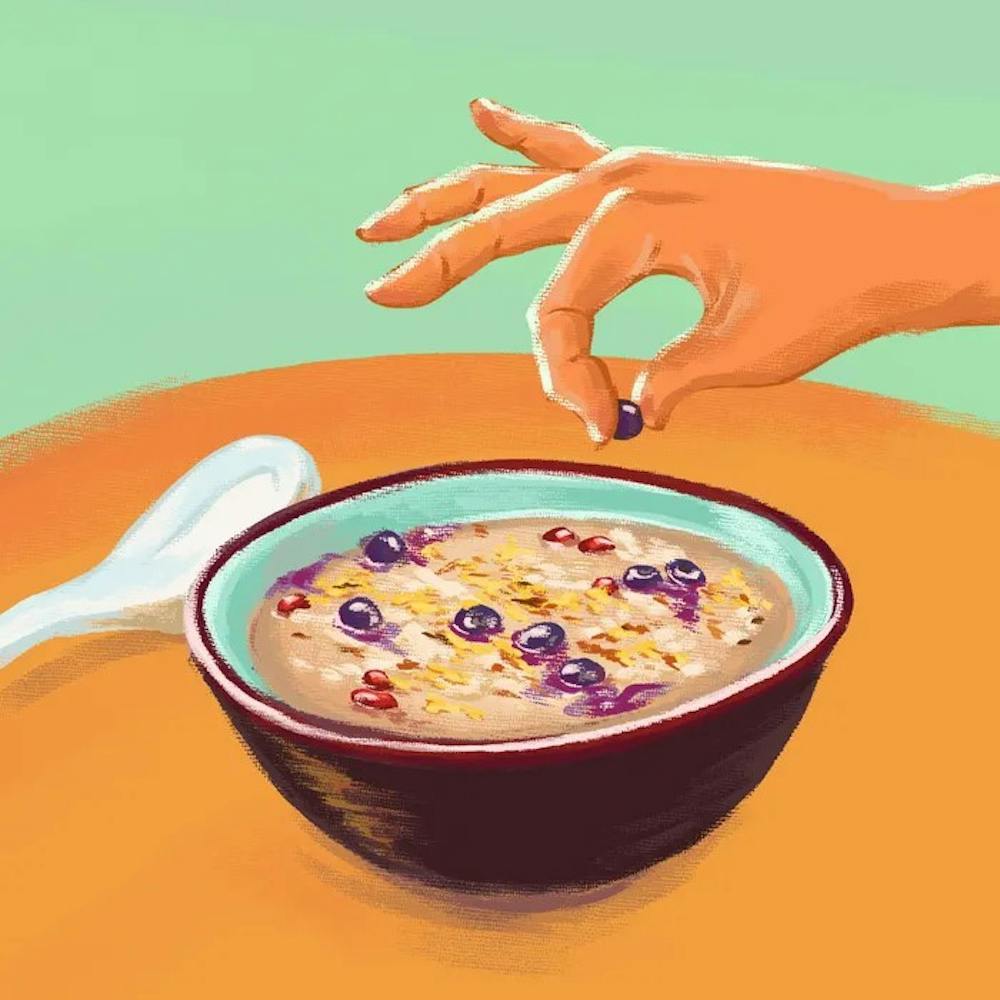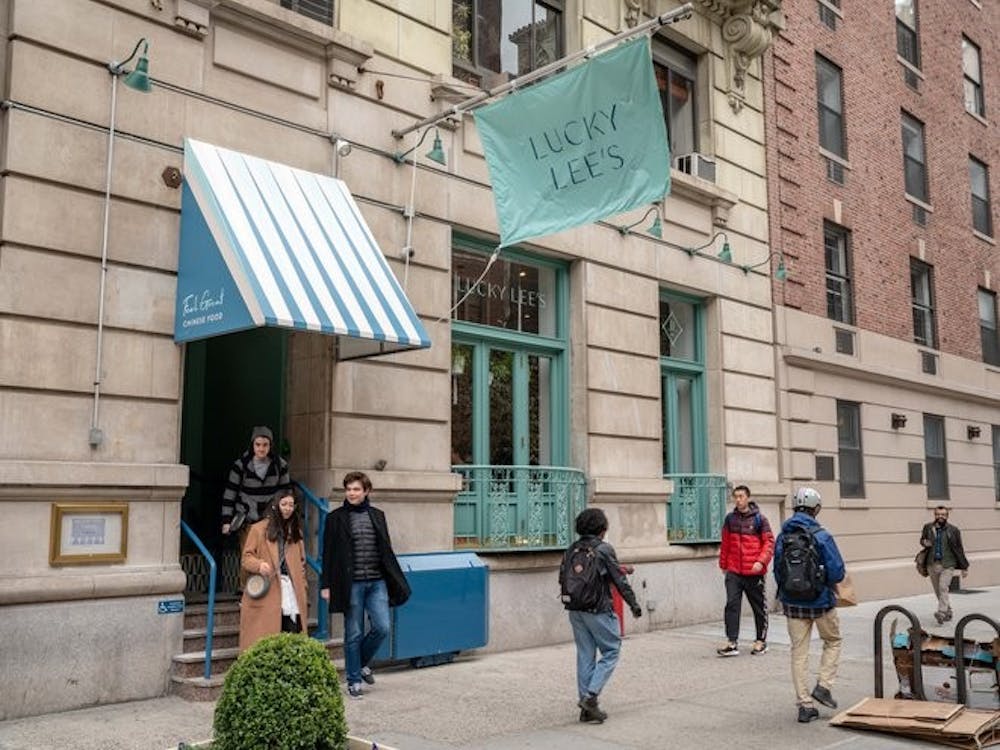Earlier this summer, a white woman crowned herself the “Queen of Congee." Karen Taylor, founder of the Oregon–based company Breakfast Cure, sells prepackaged kits of congee, a rice porridge commonly eaten across Asia and the Asian diaspora. The staple dish is both culturally and historically significant, with a rich culinary legacy that can be traced back to the Chinese Zhou dynasty.
In a blog post originally titled “How I discovered the miracle of congee and improved it,” Taylor advertised her congee products that were “moderniz[ed] for the Western palette (sic).” The blog post has since been edited, but her original statements have been documented by multiple news outlets and writers since they were published last July.
Unsurprisingly, like many recent instances of cultural appropriation in the mainstream media, the coverage on Taylor is centered not on the implications of her racist, harmful rhetoric, but on the justified outrage of the communities impacted by it. Chinese American writer Frankie Huang shared her frustration over how quickly the conversation was “reduced to a familiar 'offended POCs' versus 'oblivious white people' tug–of–war over cultural ownership, a gatekeeping story at its heart.”
While Asian people are urged to stop being hostile and sensitive because “it’s just food,” the issues of unequal power dynamics, racism in the food industry, and the orientalist language of Taylor’s statements go largely ignored.
This was evident in Breakfast Cure’s own apology post, which mentioned that they “fell short of supporting and honoring the Asian American community," but failed to acknowledge any specific wrongdoing. Breakfast Cure also still sells and profits from the congee meal kits on their store website.

By quite literally referring to herself as the “Queen of Congee,” Taylor reinforces the self–imposed position of Western chefs and influencers as the world’s “cultural connoisseurs." Through describing congee as something that must be “improved” to fit Western palates, Breakfast Cure continues to perpetrate the racist stereotypes that Asian food is unrefined, unsettling, and uncivilized—something that requires the “modern” influence of Western cuisine. Writer and podcast host Soleil Ho explores this concept in her article, "Craving the Other," where she explains how “the positioning of Western aesthetics as superior to all the rest is an expression of the idea that no culture has value unless it has been “improved” by the West’s Midas touch. If a dish hasn’t been eaten or reimagined by a white person, does it really exist?”
The trope of Asian food being “dirty” and “foreign” dates all the way back to the 1850s, and Breakfast Cure isn't the only company to be complicit in it. In 2019, Arielle and Lee Haspel, a white couple, opened a New York City restaurant called Lucky Lee’s that offered “clean” versions of traditional Chinese dishes. In a since–deleted Instagram post, the establishment advertised, “We heard you’re obsessed with lo mein but rarely eat it. You said it makes you feel bloated and icky the next day? Well, wait until you slurp up our HIGH lo mein. Not too oily. Or salty.” Arielle Haspel also argued that "there are very few American–Chinese places as mindful about the quality of ingredients as we are," tapping into disproven concerns about MSG, an ingredient commonly used in Asian cooking that has been charged with xenophobic biases for years.

When these cases of appropriation aren't interrogated, the harm of Taylor and Haspel's actions is reduced to simply cooking another country's dish, rather than their disrespect of nonwhite cultures and the association they imply between culinary sophistication and whiteness.
Frankie Huang underscores that at the end of the day, the issue isn’t necessarily with Taylor’s interpretation of congee, which includes ingredients like blueberries and apples, but it's the positioning of her “modernized” version as superior to traditional ones. Furthermore, many of the different iterations of congee that Taylor "pioneered" already exist in China. By leaving out the very "colorful and trendy aspects of congee’s culinary identity," Huang argues that "media coverage has run with the same reductive orientalist cliché peddled by the Congee Queen: that congee, just like Chinese culture itself, is rigidly traditional, exotic, and unfamiliar to America.”
The problem with Asian food appropriation ultimately lies in the privilege that allows whiteness to dictate what food is considered worthy and valuable, and the power to define what is “good” and “bad” food. Especially in the context of the ongoing COVID–19 pandemic, which has disproportionately impacted Asian food businesses and fueled rising cases of anti–Asian violence, food appropriation doesn’t exist in a vacuum. This isn't just a problem of food—it’s a problem of white supremacy.
